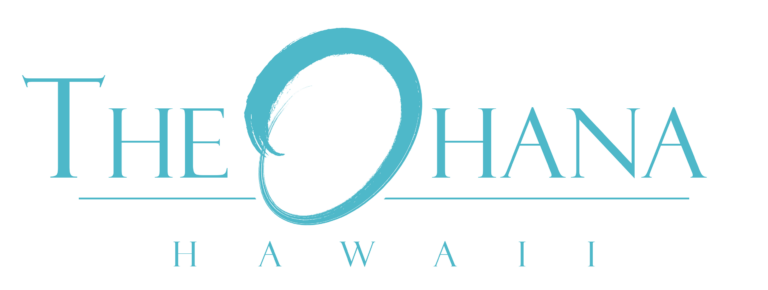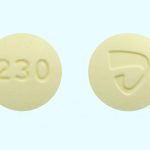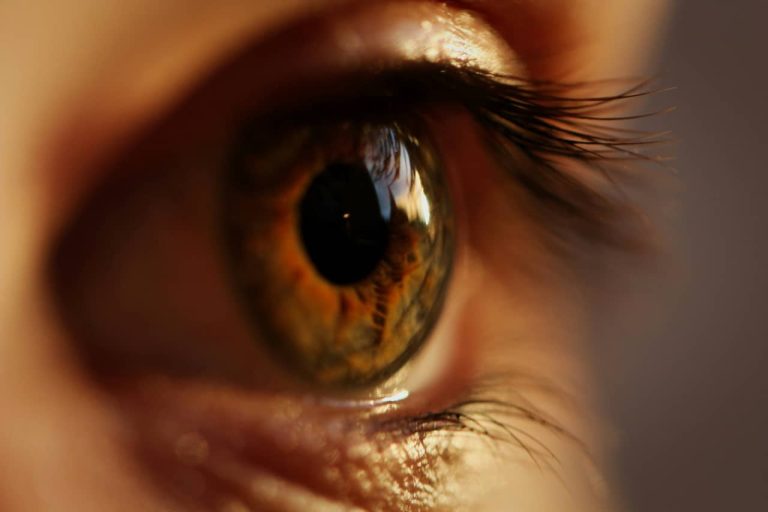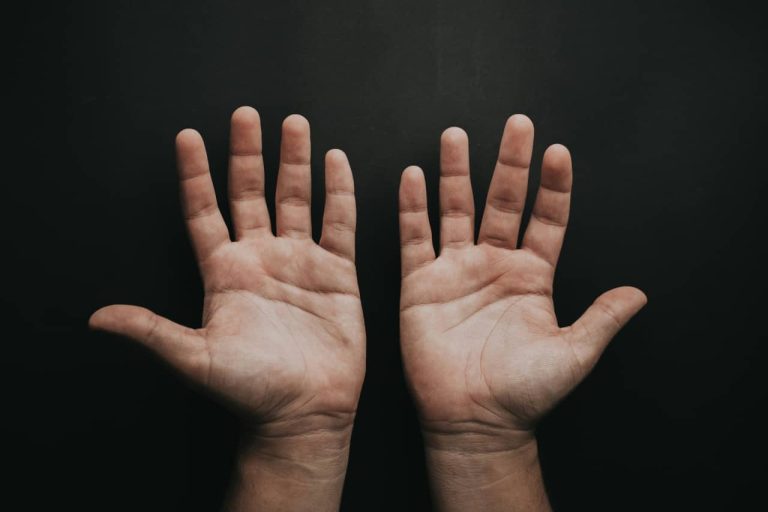Why Alcohol Can Destroy Every Part of Your Life
Alcohol is often seen as a social lubricant, a way to unwind after a long day, or a quick escape from stress. However, for many individuals, what starts as casual drinking can slowly spiral into a much deeper issue—one that takes a heavy toll on every aspect of life. From physical health deterioration to strained relationships and a damaged career, alcohol’s effects are far-reaching and insidious. Over time, the temporary relief it offers can lead to permanent consequences, affecting not only your body and mind but also your personal and professional life. Recognizing how alcohol is damaging your life is the first step toward making a change, and seeking help is essential to reversing the damage and rebuilding a healthier, more fulfilling life.
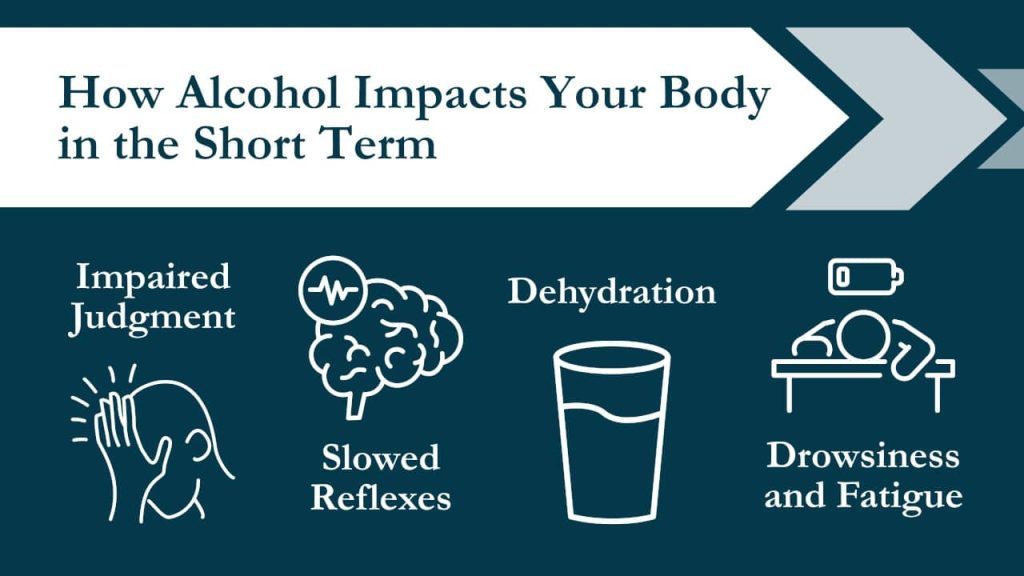
Physical Health Decline (Including Sleep, Looks, Organs)
Alcohol affects nearly every organ in the body. Over time, excessive drinking can damage the liver, leading to conditions such as fatty liver disease, cirrhosis, or liver failure. Alcohol can also interfere with normal brain function, causing memory problems, mood swings, and cognitive decline. For individuals who drink heavily, sleep quality is often compromised, leading to insomnia, restless nights, and fatigue. The visible signs of alcohol consumption can include skin problems like dryness, redness, and premature aging, as well as weight gain or loss due to the high caloric content of alcohol.
Brain & Mental Health Damage
Heavy drinking can cause severe mental health issues such as anxiety, depression, and even psychosis. Alcohol affects the brain’s neurotransmitters, leading to changes in mood, cognition, and behavior. Chronic alcohol abuse can impair brain function, leading to long-term issues with memory, decision-making, and emotional regulation. Moreover, alcohol addiction is often associated with mood disorders and can worsen symptoms of anxiety or depression.
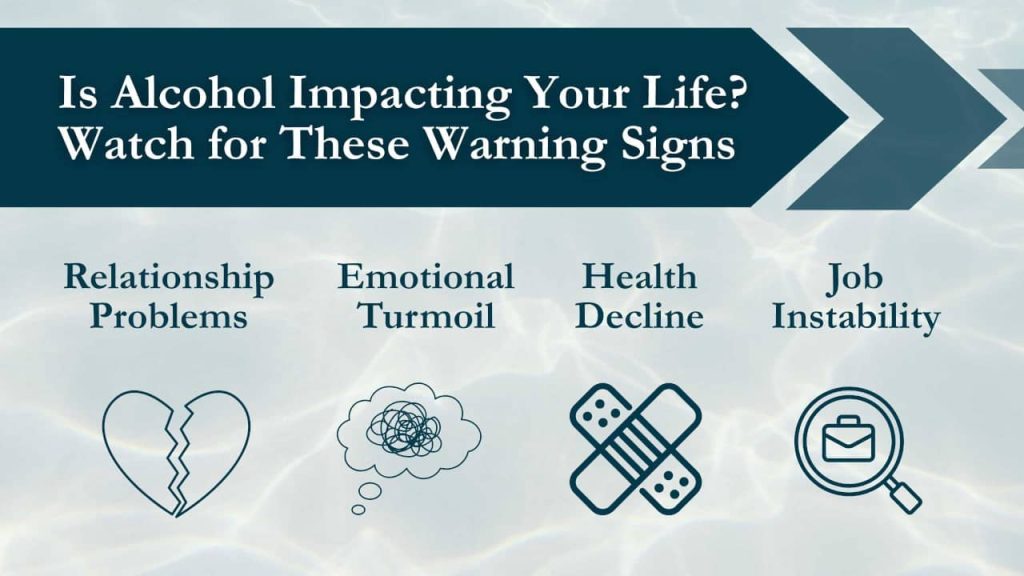
Key Signs Alcohol Is Ruining Your Life
Warning Signals You Can’t Ignore
Alcohol use can often be masked by denial, but there are warning signs that can’t be ignored. These include an increasing tolerance (needing to drink more to feel the same effect), drinking to cope with stress or emotions, and the inability to stop once you start drinking. If drinking is interfering with your daily life, causing memory blackouts, or leading to unhealthy behaviors, it’s crucial to acknowledge that alcohol may be taking a toll. If attempts to quit keep failing despite serious consequences, this pattern of chronic relapse indicates the need for structured, higher-level care.
Emotional, Relationship & Social Fallout
Alcohol can severely impact relationships. People may become distant or aggressive when under the influence, leading to conflict with family, friends, and coworkers. In social settings, alcohol can distort one’s ability to connect with others meaningfully. It may also lead to isolating behaviors, where an individual chooses alcohol over spending quality time with loved ones. This emotional and social fallout often compounds feelings of guilt, shame, and anxiety.
Career Impact: Job Loss & Broken Opportunities
The effects of alcohol abuse can extend into the workplace. Consuming alcohol frequently can impair judgment, hinder productivity, and lead to absenteeism. This can result in lost job opportunities, poor performance reviews, and eventually job loss. People struggling with alcohol addiction may also experience difficulties maintaining professional relationships, which can further hinder career growth.
Can You Heal—and How Long Does It Take?
Reversing Physical Damage: What’s Possible
While some physical damage from long-term alcohol abuse may be irreversible, many effects can be mitigated or even reversed with sobriety. The liver has the ability to heal itself, especially if alcohol consumption is ceased early enough. Improved sleep patterns, better skin, and restored organ function are common benefits of quitting alcohol. However, the longer alcohol use continues, the more difficult it becomes to repair the damage fully.
Brain Recovery & Cognitive Healing
The brain’s ability to heal after alcohol abuse varies, but research suggests that cognitive function can improve with sustained abstinence. Memory, focus, and emotional regulation often show significant improvement in individuals who remain sober. It may take time for the brain’s neurotransmitters to rebalance, but many people report feeling clearer, more stable, and more emotionally resilient as they progress in their recovery journey.
Steps Toward Recovery & Rebuilding Your Life
Lifestyle Changes: Sleep, Nutrition, Support Networks
Recovery from alcohol addiction requires a holistic approach. Prioritizing sleep is essential, as alcohol often disrupts the sleep cycle. Maintaining a balanced diet helps restore essential nutrients depleted by alcohol. Furthermore, rebuilding a supportive network of friends, family, or recovery groups is key to maintaining long-term sobriety. Support networks like Alcoholics Anonymous or SMART Recovery can provide invaluable guidance and community throughout the process.
Finding Support: Helplines, Groups, Medical Professionals
One of the most important steps in recovery is seeking support. Helplines such as SAMHSA’s National Helpline offer confidential, 24/7 assistance for people struggling with alcohol addiction. Recovery groups, both in-person and online, provide a supportive space to share experiences and gain insight. Medical professionals, including therapists and addiction counselors, can offer personalized treatment plans and therapeutic interventions that cater to an individual’s specific needs.
Professional Treatment Options
For those who require more intensive care, inpatient rehab centers like The Ohana offer a comprehensive range of services. These programs offer a combination of evidence-based therapies, holistic treatments, and personalized care in a serene, supportive environment. The Ohana’s luxury alcohol rehab in Hawaii provides a tranquil setting that promotes healing, recovery, and self-discovery.
Therapy Modalities at The Ohana and How They Heal
Cognitive Behavioral Therapy (CBT)
CBT is one of the most widely used therapeutic approaches for alcohol addiction recovery. This therapy helps individuals identify negative thought patterns and replace them with healthier, more adaptive behaviors. By learning to recognize triggers and the consequences of alcohol use, clients can develop coping strategies to avoid relapse. CBT empowers clients to take control of their thoughts and behaviors, leading to greater self-direction in recovery.
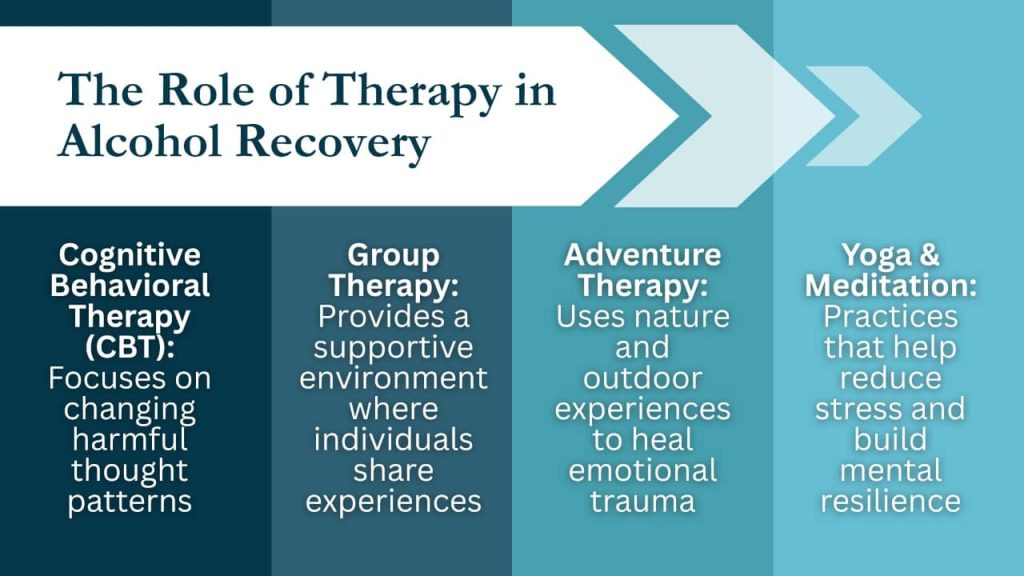
Dialectical Behavioral Therapy (DBT)
DBT is particularly useful for clients who struggle with emotional regulation. It helps individuals learn to accept and manage difficult emotions, rather than turning to alcohol to cope. DBT teaches clients how to tolerate distress, improve relationships, and create a sense of emotional balance. This is crucial for long-term recovery, as emotional dysregulation often plays a significant role in substance abuse.
Psychodynamic Therapy
Psychodynamic therapy delves into the subconscious drivers of alcohol use, exploring past experiences and unresolved trauma. By understanding how early life experiences contribute to current behaviors, clients can gain insight into the underlying causes of their addiction. Psychodynamic therapy fosters deep self-awareness, helping individuals work through internal conflicts and achieve lasting recovery.
Group Therapy
Group therapy at The Ohana provides a supportive environment where clients can share their struggles and victories. Group settings foster connection and accountability, allowing individuals to learn from others while strengthening their own recovery. This peer-driven approach is especially beneficial for those who feel isolated or misunderstood in their journey.
Ecopsychology
Ecopsychology is a therapy that helps individuals reconnect with nature as part of their healing process. By spending time in nature, clients can gain perspective, reduce stress, and feel a deeper sense of interconnectedness. The Ohana’s beautiful Hawaiian setting provides the perfect backdrop for ecopsychology, offering clients the opportunity to heal physically and emotionally through immersion in the natural world.
Yoga
Yoga combines intentional movement with breathwork to help clients connect mind, body, and spirit. It’s an effective way to release stress and tension, which is vital in addiction recovery. The physical practice of yoga also promotes strength, flexibility, and relaxation, helping individuals regain control over their bodies and feel grounded during recovery.
Meditation and Mindfulness
Meditation and mindfulness techniques teach clients to stay present in the moment and develop a deeper understanding of their thoughts and emotions. These practices can reduce anxiety, improve emotional regulation, and enhance self-awareness, which are all crucial components of long-term sobriety. Mindfulness also helps clients cultivate a sense of peace and acceptance, both during and after the recovery process.
Art Therapy
Art therapy offers a creative outlet for individuals to express emotions that may be difficult to articulate verbally. By creating visual representations of their experiences, clients can process feelings of trauma, shame, or fear. Art therapy promotes healing by allowing clients to explore their emotions in a safe, non-judgmental space.
Massage Therapy
Massage therapy is an integral part of The Ohana’s holistic approach. It helps reduce muscle tension, lower stress levels, and promote relaxation. Massage not only provides physical relief but also encourages mental clarity, helping individuals feel more at ease in their bodies as they navigate the recovery process.

Adventure Therapy
At The Ohana, we integrate Adventure Therapy as a key component of our holistic treatment program. Adventure therapy utilizes outdoor activities and experiential challenges to help individuals confront their fears, build trust, and develop resilience. It’s an essential aspect of recovery that goes beyond traditional therapies, helping clients reconnect with themselves and the world around them in a way that promotes physical, emotional, and psychological healing.
Healing at The Ohana: A Place to Rebuild Your Life
At The Ohana, we understand that healing is a personal and transformative journey. Our luxury rehab center offers a comprehensive, holistic approach to addiction recovery. With a combination of evidence-based therapies, personalized treatment plans, and the healing power of Hawaii’s natural beauty, clients can find the peace and strength they need to rebuild their lives.
If you or someone you love is struggling with alcohol addiction, contact The Ohana today to begin your journey toward healing and transformation.



